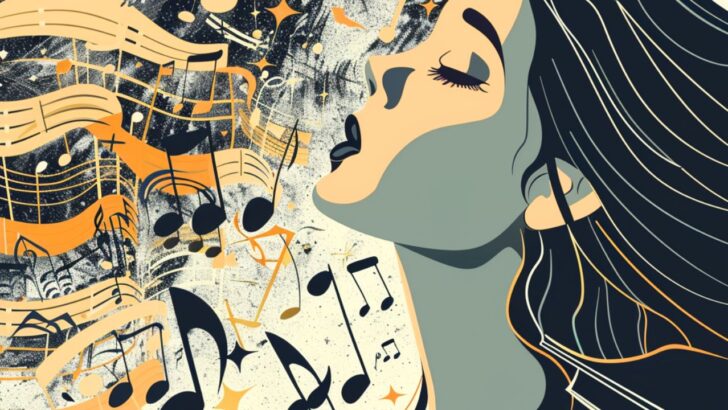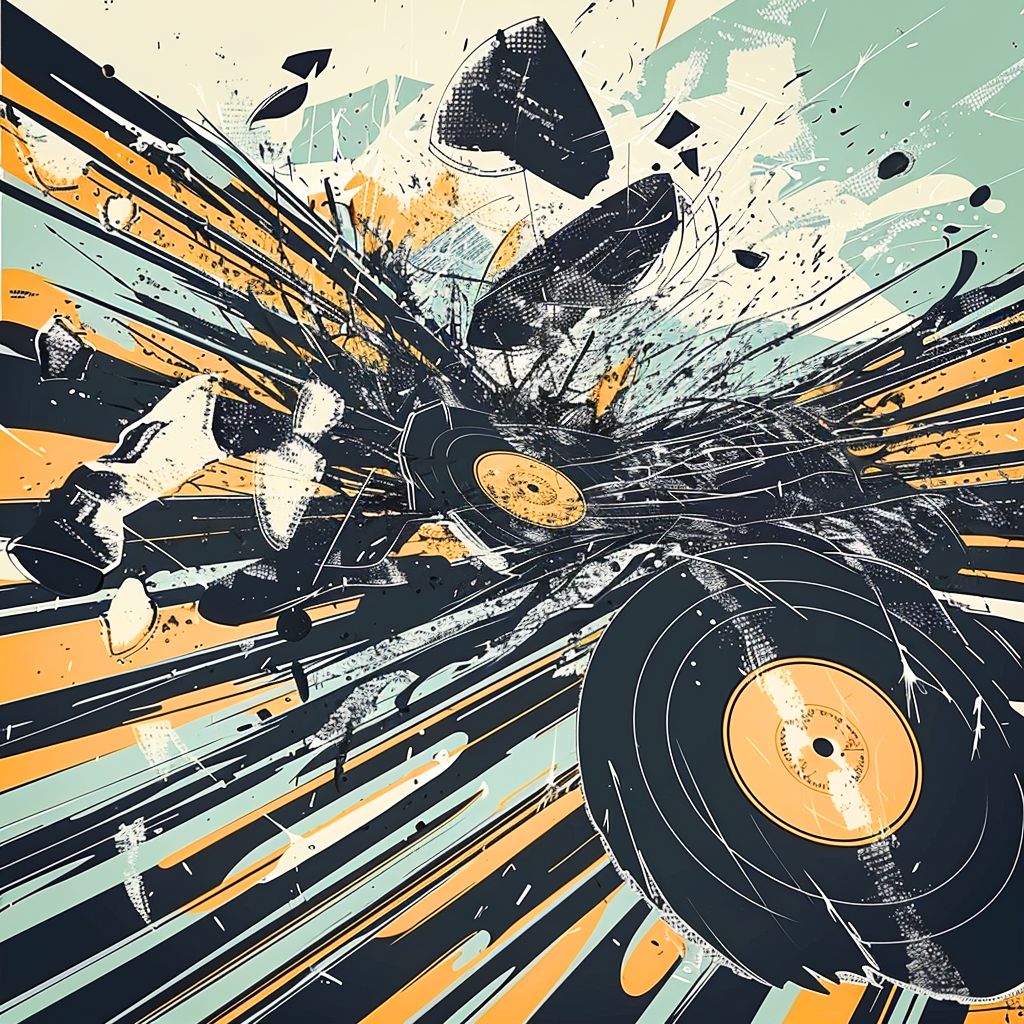Hey there, language lovers! Ready to add some rhythm to your everyday conversations? From ‘blowing your own trumpet’ to ‘jazzing things up,’ the expressions below will make your vocabulary sing.
Perfect for spicing up your chats and impressing your friends, these idioms are as catchy as your favorite tune. Let’s get groovin’ and explore the fun side of language!
1. Blow Your Own Trumpet
Ever heard someone bragging about their accomplishments? That’s what ‘blow your own trumpet’ is all about. It’s when someone can’t stop talking about how awesome they are at something.
This saying comes from back in the day when trumpeters would announce the arrival of important people. So, if you’re blowing your own trumpet, you’re making sure everyone knows just how great you are.
Throwing ‘blow your own trumpet’ into a conversation can add a bit of flair and humor, pointing out when someone’s really laying it on thick.
Example 1: “Yeah, he likes to blow his own trumpet about winning that office trivia contest.”
Example 2: “Instead of blowing her own trumpet, she let her amazing baking skills do the talking.”
Ready to jam on the next idiom?
2. Face the Music
“Time to ‘face the music’ means you’ve got to deal with the consequences of something you did. It’s all about owning up to your actions, especially when things go south.
This phrase likely comes from military traditions where soldiers had to face a literal drumming out ceremony if they messed up. So, when you ‘face the music,’ you’re confronting reality head-on, no matter how tough it might be.
Using ‘face the music’ in your chat can add some drama and highlight the importance of taking responsibility.
Example 1: “After sneaking out and getting caught, she had to face the music with her parents.”
Example 2: “The CEO had to face the music during the shareholder meeting after the company’s losses were revealed.”
Ready to groove to the next idiom?
3. Hit the Right Note
“When you ‘hit the right note,’ you’ve done something just right, nailing it perfectly. It’s like hitting that sweet spot where everything just clicks and people are impressed.
This saying comes straight from the music world, where hitting the right note is crucial for making beautiful music. So, if you hit the right note, you’ve done something that’s perfectly in tune with what’s needed.
Dropping ‘hit the right note’ in conversation can add a melodic twist, showing that someone has aced it.
Example 1: “Her toast at the wedding hit the right note, making everyone laugh and cry.”
Example 2: “The new ad campaign really hit the right note with our target audience.”
Shall we keep the rhythm going with the next idiom?
4. It Takes Two to Tango
“‘It takes two to tango’ means that any situation or argument involves two people, and both are responsible for it. You can’t have a dance with just one person, right? This phrase is perfect for highlighting mutual responsibility.
This idiom comes from the dance world, specifically the tango, which requires two people to perform. So, if something’s going wrong, remember that it usually takes two to make things happen (or mess things up).
Using ‘it takes two to tango’ adds a bit of dance-floor drama to your conversation, pointing out that it’s never just one person’s fault.
Example 1: “Don’t blame just her for the breakup; it takes two to tango.”
Example 2: “Both the manager and the employee need to work on their communication. It takes two to tango.”
Ready to dance on to the next idiom?
5. Music to My Ears
“Hearing something you love or agree with? That’s ‘music to my ears.’ It’s a way of saying that what you’ve just heard is as pleasant as your favorite song.
The origin is pretty straightforward—everyone loves listening to music they enjoy. So, when you say something is ‘music to your ears,’ you’re saying it’s super satisfying or delightful.
Using ‘music to my ears’ in a chat can add a harmonious vibe, showing how pleased you are with what’s being said.
Example 1: “When the boss said we could leave early, it was music to my ears.”
Example 2: “Her offer to help with the project was music to my ears after a long week.”
Shall we keep the melody going with the next idiom?
6. Play It by Ear
“To ‘play it by ear’ means to go with the flow and make decisions as things happen, rather than planning everything out. It’s like improvising in a jazz session—just taking it as it comes.
This idiom comes from musicians who play music without a written score, relying on their ears and intuition instead. So, when you ‘play it by ear,’ you’re staying flexible and spontaneous.
Using ‘play it by ear’ in a conversation adds a casual, easy-going vibe, perfect for those moments when you’re keeping things loose.
Example 1: “We don’t have a set plan for the day. Let’s just play it by ear and see what we feel like doing.”
Example 2: “I’m not sure how long the meeting will last, so let’s play it by ear and decide on lunch afterward.”
Ready to improvise our way to the next idiom?
7. Ring a Bell
“When something ‘rings a bell,’ it means it sounds familiar, like you’ve heard it before but can’t quite place it. It’s that moment when something tickles your memory.
This idiom probably comes from the way a bell’s sound can be instantly recognizable and memorable. So, if something rings a bell, it’s like a mental chime going off, reminding you of something.
Dropping ‘ring a bell’ into a chat adds a nostalgic touch, signaling that you’ve encountered this before, even if you can’t pinpoint it right away.
Example 1: “Does the name John Smith ring a bell? I think we met him at the conference last year.”
Example 2: “Her face rings a bell, but I can’t remember where I’ve seen her before.”
Shall we continue the symphony with the next idiom?
8. Sound Like a Broken Record
“To ‘sound like a broken record’ means to keep repeating the same thing over and over, to the point of being annoying. It’s like when a scratched vinyl record keeps playing the same snippet of a song on loop.
This idiom comes from the days of vinyl records, where a scratch would cause the needle to get stuck and replay the same part endlessly. So, if someone sounds like a broken record, they’re stuck on repeat.
Using ‘sound like a broken record’ adds a retro vibe to your conversation, perfect for pointing out repetitive behavior.
Example 1: “You sound like a broken record! I’ve heard you complain about the weather five times today.”
Example 2: “He keeps reminding us about the deadline. He’s starting to sound like a broken record.”
Ready to switch tracks to the next idiom?
9. Strike a Chord
“When something ‘strikes a chord,’ it means it resonates deeply with you or evokes a strong emotional response. It’s like hearing a particular note in music that hits you right in the feels.
This idiom comes from music, where striking a chord creates a harmonious sound that can stir emotions. So, if something strikes a chord, it connects with you on a personal level.
Using ‘strike a chord’ in conversation adds an emotional touch, showing that something has genuinely moved you.
Example 1: “Her story about overcoming adversity really struck a chord with me.”
Example 2: “The movie struck a chord with audiences, leaving many in tears.”
Shall we continue to the next idiom?
10. March to the Beat of Your Own Drum
“To ‘march to the beat of your own drum’ means to do things your own way, regardless of what others might think. It’s all about being independent and following your unique path.
This idiom comes from the idea of a drummer setting the pace for a march. If you’re marching to your own beat, you’re setting your own pace and direction, not following the crowd.
Using ‘march to the beat of your own drum’ in conversation highlights individuality and nonconformity, celebrating those who dance to their own rhythm.
Example 1: “She always wears the quirkiest outfits, really marching to the beat of her own drum.”
Example 2: “Don’t worry about fitting in. Just march to the beat of your own drum and be yourself.”
Ready to march on to the next idiom?
11. Change Your Tune
“To ‘change your tune’ means to alter your attitude or opinion about something, especially when the circumstances change. It’s like going from singing a sad song to a happy one because things have improved.
This idiom comes from music, where changing the tune can completely alter the mood and feel of a piece. So, if you change your tune, you’re shifting your perspective, often dramatically.
Using ‘change your tune’ in conversation adds a musical twist, perfect for highlighting when someone has had a change of heart.
Example 1: “He was skeptical about the new project at first, but after seeing the results, he changed his tune.”
Example 2: “She always complained about city life, but now that she’s moved back, she’s changed her tune.”
Ready to continue to the next idiom?
12. Fine-Tune
“To ‘fine-tune’ something means to make small adjustments to improve it or make it work perfectly. It’s like tweaking a musical instrument to get just the right sound.
This idiom comes from the practice of musicians adjusting their instruments to achieve the perfect pitch. So, when you fine-tune something, you’re perfecting it, paying attention to the little details.
Using ‘fine-tune’ in conversation adds a precision vibe, showing that you’re all about making things just right.
Example 1: “We need to fine-tune the presentation before the big meeting tomorrow.”
Example 2: “The chef spent hours fine-tuning the recipe until it was perfect.”
Shall we move on to the next idiom?
13. Jazz Something Up
“To ‘jazz something up’ means to make it more lively, exciting, or interesting. It’s like adding a bit of flair or pizzazz to something that’s otherwise dull.
This idiom comes from the world of jazz music, known for its vibrant and energetic style. So, when you jazz something up, you’re injecting some fun and creativity into it.
Using ‘jazz something up’ in conversation adds a playful, energetic vibe, perfect for those moments when things need a bit of sparkle.
Example 1: “We need to jazz up the living room with some colorful cushions and artwork.”
Example 2: “The party was a bit boring until they jazzed it up with some great music and decorations.”
Ready to keep the energy up with the next idiom?
14. Sing a Different Tune
“To ‘sing a different tune’ means to change your opinion or attitude about something, especially if your circumstances have changed. It’s like going from one song to another because the situation calls for it.
This idiom comes from the idea that changing a tune can shift the mood or message. So, if someone sings a different tune, they’re expressing a new viewpoint or feeling.
Using ‘sing a different tune’ in conversation adds a musical flair, perfect for highlighting when someone’s outlook has shifted.
Example 1: “He used to hate working out, but now he sings a different tune after seeing the benefits.”
Example 2: “She was against the idea at first, but once she saw the results, she started singing a different tune.”
Shall we continue with the next idiom?
15. Strike the Right Note
“When you ‘strike the right note,’ it means you’ve done or said something exactly right, hitting the perfect spot. It’s like playing the perfect note in a song that makes everything sound just right.
This idiom comes from music, where hitting the right note is essential for harmony. So, if you strike the right note, you’ve nailed it, whether it’s in conversation, an action, or a presentation.
Using ‘strike the right note’ in conversation adds a touch of harmony, showing that someone has achieved just the right effect.
Example 1: “Her comments during the meeting struck the right note, addressing everyone’s concerns perfectly.”
Example 2: “The new product launch video really struck the right note with our audience.”
Ready to hit the next idiom?
16. Tune In to Something
“To ‘tune in to something’ means to pay attention or become aware of something. It’s like adjusting a radio to catch your favorite station, getting in sync with what’s going on.
This idiom comes from the world of radio and TV, where you tune in to catch a broadcast. So, when you tune in to something, you’re focusing your attention on it.
Using ‘tune in to something’ in conversation adds a tech-savvy touch, perfect for highlighting awareness or attentiveness.
Example 1: “You should tune in to the latest trends if you want to stay ahead in the fashion industry.”
Example 2: “He really needs to tune in to what his team is saying if he wants to improve morale.”
Ready to stay tuned for the next idiom?
17. In Perfect Harmony
“To be ‘in perfect harmony’ means to be in complete agreement or to work together seamlessly. It’s like a choir where every voice blends perfectly, creating a beautiful sound.
This idiom comes from music, where harmony refers to different notes working together to create a pleasing effect. So, if people or things are in perfect harmony, they complement each other perfectly.
Using ‘in perfect harmony’ in conversation adds a melodic touch, showing that everything is working together smoothly.
Example 1: “The team worked in perfect harmony to complete the project ahead of schedule.”
Example 2: “Their ideas were in perfect harmony, leading to a successful collaboration.”
Shall we continue to the next idiom?
18. Call the Tune
“To ‘call the tune’ means to be in control or to make the important decisions. It’s like being the conductor of an orchestra, directing how the music should be played.
This idiom originates from music, where the person who calls the tune decides what will be played and how. So, if you call the tune, you’re the one in charge, making the key choices.
Using ‘call the tune’ in conversation adds an authoritative note, indicating who holds the power in a situation.
Example 1: “In this office, it’s the CEO who calls the tune on all major decisions.”
Example 2: “When planning a trip with friends, it’s usually the most organized person who ends up calling the tune.”
Ready to strike the next idiom?
19. Strike Up the Band
“To ‘strike up the band’ means to start something with enthusiasm, often related to beginning an event or activity. It’s like getting a band to start playing, signaling the beginning of something exciting.
This idiom comes from the world of music, where striking up the band marks the start of a performance. So, when you strike up the band, you’re kicking things off with energy and excitement.
Using ‘strike up the band’ in conversation adds a festive flair, perfect for those moments when you’re about to get something lively started.
Example 1: “Once everyone arrived at the party, we struck up the band and started the celebrations.”
Example 2: “As soon as the meeting began, she struck up the band with an engaging presentation.”
Ready to keep the rhythm going with the next idiom?
20. All That Jazz
“‘All that jazz’ means everything related to what was just mentioned, including extra details and similar things. It’s like saying ‘and everything else that goes with it.’
This idiom comes from the musical genre jazz, which is known for its lively and varied style. So, when you say ‘all that jazz,’ you’re capturing the whole deal, with all its little bits and pieces.
Using ‘all that jazz’ in conversation adds a cool, jazzy vibe, making your chat more colorful and expressive.
Example 1: “She’s into yoga, meditation, healthy eating, and all that jazz.”
Example 2: “We need to sort out the contracts, deadlines, and all that jazz before we can start the project.”
Ready to keep the music playing with the next idiom?

Hey fellow Linguaholics! It’s me, Marcel. I am the proud owner of linguaholic.com. Languages have always been my passion and I have studied Linguistics, Computational Linguistics and Sinology at the University of Zurich. It is my utmost pleasure to share with all of you guys what I know about languages and linguistics in general.









